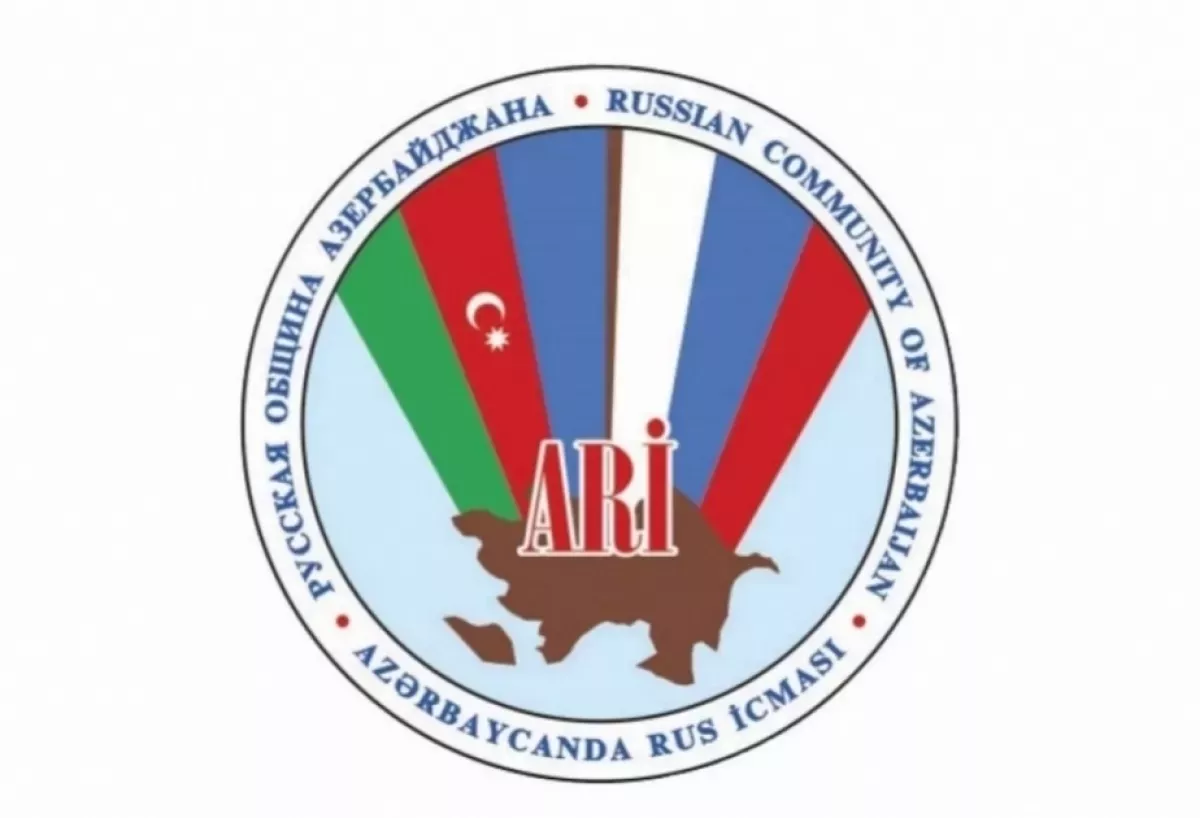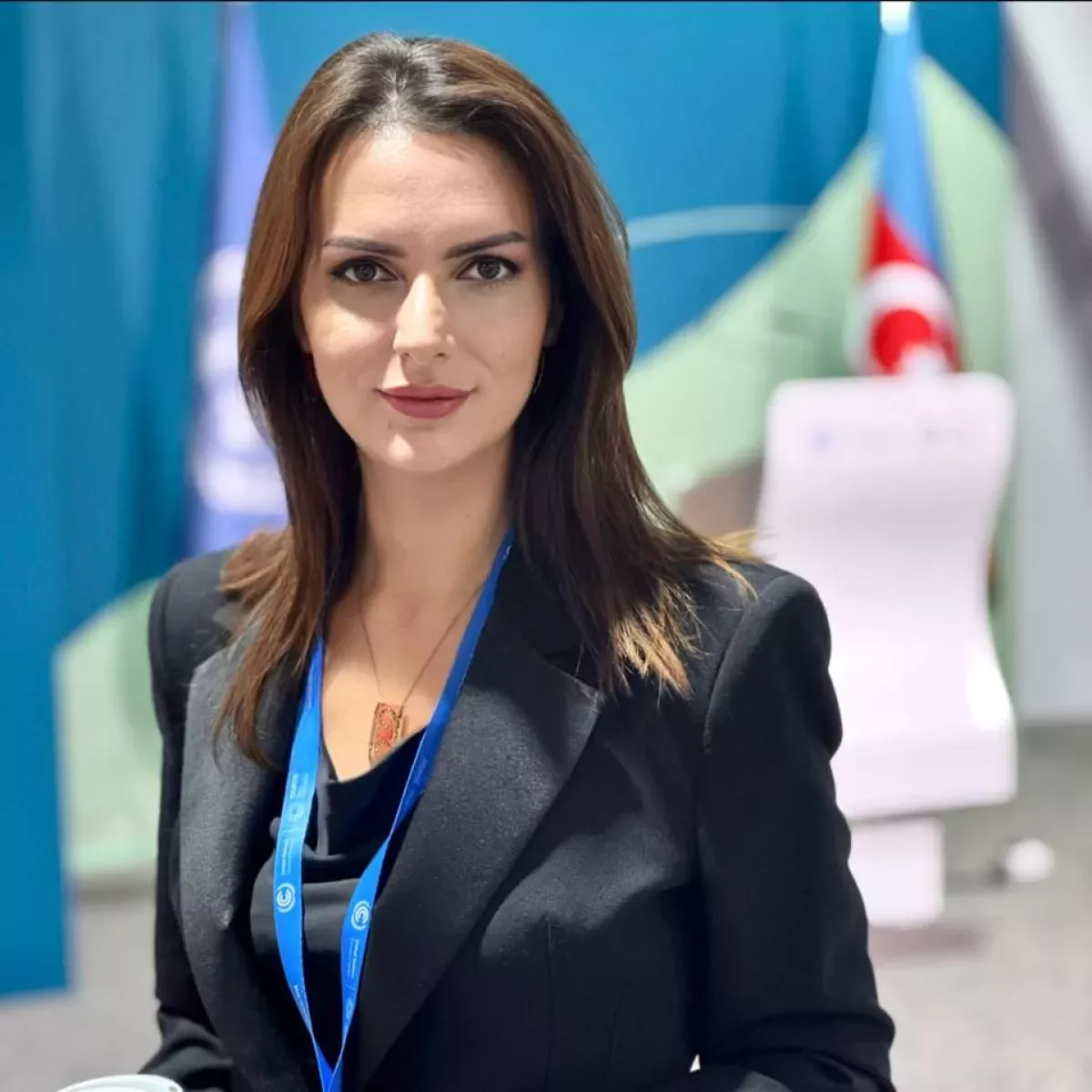Azerbaijan's Russian Community: Closure of "Russian House" in Baku not politically motivated PHOTO
The First Deputy Chairman of the Russian Community of Azerbaijan (RCA), political scientist, and journalist Anastasia Lavrina has commented on the closure of the "Russian House" in Baku, emphasizing that the decision is aligned with national laws and international practices.
Lavrina stated that the situation surrounding the closure of the "Russian House" in Baku is essentially a standard procedure closely linked to the requirements of national legislation and international practices insisted upon by Azerbaijan, Caliber.Az reports.

"The Republic of Azerbaijan, as an independent, sovereign state, has the full right to regulate the activities of foreign organizations within its territory in accordance with its laws and international obligations. The first and most important aspect is the issue of registering foreign organizations as legal entities on the territory of Azerbaijan. This process requires compliance with the administrative and legal norms established in the country.
In the case of ‘Russian House,’ which operates as a representative office of ‘Rossotrudnichestvo,’ the lack of registration of the organization as a legal entity was the main reason for the demand to cease its activities. Statements that appeared in some Azerbaijani media about the alleged involvement of the ‘Russian House’ with Russian intelligence services were not made by official representatives. Therefore, the demand to close the ‘Russian House’ in Baku is not an incidental or politically motivated decision, but rather a logical reaction to the lack of legal registration and the need to adhere to international and national legal norms.
The decision to close the ‘Russian House’ in Baku should not be perceived as a harbinger of a conflict in bilateral relations with Russia. It is a standard legal procedure based on adherence to national legislation. If a legal issue arises on the part of the Russian Federation, Moscow will make the corresponding decisions within the framework of its own legislation. The concern expressed by Russian media regarding the closure of the ‘Russian House’ in Baku is more of a private nature, as this position has not been expressed at the state level.

Overall, both Azerbaijan and Russia have demonstrated a willingness to resolve the situation through constructive dialogue. Both countries have significant experience in addressing such issues, and this case will be no exception. As indicated by diplomatic statements, both sides are committed to maintaining stable and friendly relations and will seek a solution that is acceptable to both parties.
Undoubtedly, the tragic incident involving the crash of an Azerbaijan Airlines plane at the end of last year has indeed influenced the dynamics of relations between Azerbaijan and Russia. Azerbaijan has every right to demand acknowledgment of guilt and accountability from those responsible for the disaster. Baku continues to insist on punishing the guilty parties and compensating the families of those killed and injured in the crash. The key issue in this matter is restoring justice and doing everything possible to ensure that such an event never happens again. However, this is a separate topic that also requires careful and balanced consideration.
The presence or absence of the ‘Russian House’ in Baku is not the primary factor in the development of the Russian language or the attitude toward it in Azerbaijan. The country traditionally maintains a high degree of multiculturalism and respect for various ethnic groups. Azerbaijan has always been proud of its multinational composition and strives to maintain harmony among all the peoples living on its territory, including the Russian community.
The Russian community in Azerbaijan is an integral part of society, and its influence on the country's cultural, educational, and social life is quite significant. An example of this is the presence of Russian schools, the teaching of the Russian language in several educational institutions, and the active participation of Russian-speaking citizens in the country's public life. The Russian language remains important in business and diplomatic relations between Azerbaijan and Russia. Azerbaijan is an active participant in international organizations where Russian is often used as one of the working languages. This creates additional motivation for learning the language. Therefore, despite possible changes in the status of the ‘Russian House,’ I am confident that the attitude toward the Russian language and Russian-speaking citizens will remain positive and stable.
The issue of registering the ‘Russian House’ as an organization is currently under discussion, and Moscow has already expressed its willingness to cooperate on this matter. Despite all the challenges, it is worth noting that cultural exchange between the countries continues through other channels, such as embassies, ministries of culture, diaspora organizations, and other official and private initiatives. "I am confident that all issues will be resolved soon," Lavrina emphasized.








